Some of the most significant characters in George R.R. Martin’s fantasy realms—which inspired the HBO sensation Game of Thrones and its more recent prequel House of the Dragon—have some kind of disability, deformity, or disadvantage. They spend much of their lives compensating for it, often in destructive ways. In the process, they exemplify an essential part of compelling storytelling: using suffering as a way to craft convincing motives and scenarios.
So it is with Prince Aemond Targaryen. The second son of the king’s second wife, belittled and cast aside by his own family, begins as a bullied momma’s boy and grows into a one-eyed kin-slayer, one of the most terrifying figures in the story who ultimately starts the brutal civil war that the series centers on. With Season 2 of House of the Dragon set to come out later this month, it’s worth revisiting what made Aemond the most captivating character in the series.
In a nutshell, it’s this: More than any other character, we see Aemond change. His arc shows how people never get over certain things, how we are shaped by our painful or shameful experiences. As Ewan Mitchell, who plays the elder Aemond in the show, remarked, “You might not like Aemond … But you do feel something for him. You might not condone his actions, but you understand [his reasons] why.” Dark, deeply flawed, brimming with complexity and ambiguity, Aemond’s personal tragedy reflects the looming tragedy of House of the Dragon: a fall from historical greatness at the altar of family grievance.
(Reader beware: spoilers ahead.)
Martin’s fantasy world presents a fallen world of morally gray and insecure characters, each with divided allegiances and complex motivations, vying for power in a Hobbesian war of all against all. In the fictional continents of Westeros and Essos, people suffer and cope with that suffering—often causing more suffering in turn—but what really matters are the things that last: lineage and legacy, tradition and duty, and the family name, which lives on.
Most of Martin’s storylines center on marriage pacts and children, and much of their conflict emerges around inter and intra family disputes among noble houses. Murder is normalized and even encouraged in this culture. But having children out of wedlock, bastardy, and other forms of oath-breaking are stigmatized for going against the uber-values of family legacy, honor, and duty.
Enter the incestuous House Targaryen, some of the last descendants of a once-great empire who, through a congruence of historical forces and a mixture of science and magic, came to be the only remaining people in the world with dragons. The most significant family in Westerosi history, they reigned for nearly 300 years.
House of the Dragon tells the story of the civil war that broke out within the Targaryen royal family at the height of their dynasty. The conflict centers on King Viserys Targaryen’s fateful decision to name his teenage daughter, Princess Rhaenyra, as his successor against all precedent and tradition. Why? Largely out of guilt over her mother, who died during childbirth, trying to give him a male heir.
The king ends up disastrously remarrying, however, to Rhaenyra’s childhood best friend, Alicent Hightower, opening a rift within the family. Queen Alicent goes on to give the king multiple children and male heirs, yet Viserys is unrelenting in his decision for his eldest daughter to succeed him. The kingdom is thus divided over whether Rhaenyra or Alicent’s eldest son should inherit the Iron Throne. Making matters worse, Rhaenyra has multiple children out of wedlock with her knight in arms, Ser Harwin Strong, stigmatizing her heirs as bastards and creating a conflict of legitimacy over the royal line.
Prince Aemond Targaryen is the third child and second son of King Viserys and Queen Alicent, growing up in this milieu of familial bitterness and paranoia. Bullied by his older brother Aegon and his younger nephews Jacaerys and Lucerys (read: Strong bastards) for being the only one in the family without a dragon, Aemond is haunted by the pain of rejection and a sense of inferiority. In contrast to his degenerate older brother, Aemond shows a profound sense of duty early on and a desire to live up to the family name. Eventually he is moved to risk his young life to claim the largest and deadliest dragon in the world, Vhagar, nearly burning alive though ultimately succeeding gloriously.
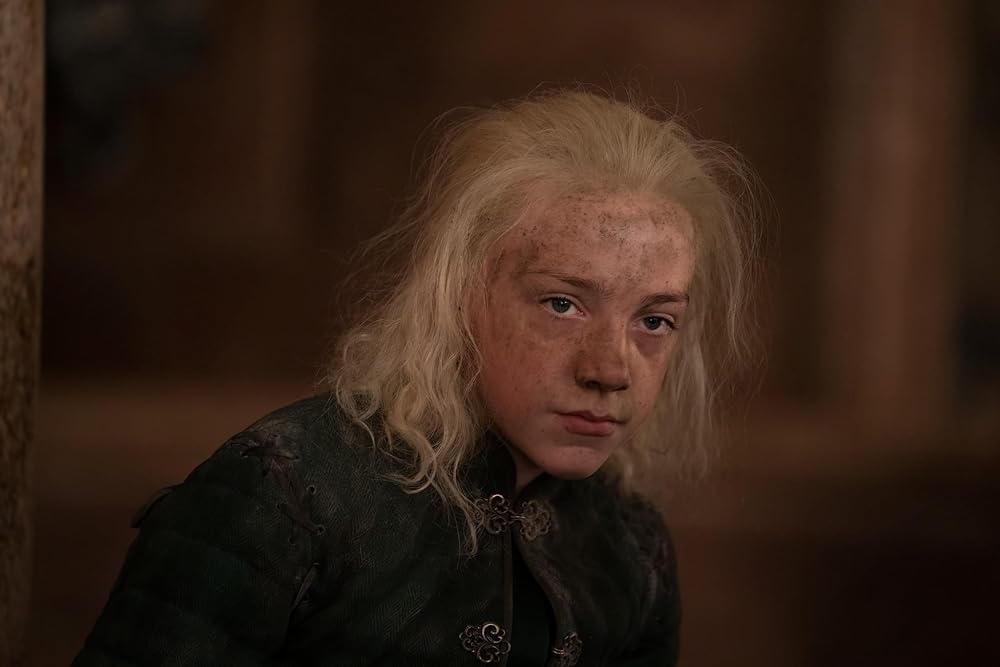
Immediately afterward, Aemond is confronted by his nephews and cousins and, after a vicious child fight, has his eye slashed out by his youngest nephew, Lucerys, in a fit of protective brotherly rage. When the children are brought before the rest of the family, King Viserys shows clear favoritism by siding with Rhaenyra’s children over his own. It’s then revealed that Aemond, in the heat of the fight, called his nephews “bastards”—a treasonous accusation. Aemond is threatened with torture to reveal where he heard this “lie,” and his mother is the only one in the room willing to stand up for her now disabled son. To end the dispute and spare his mother, young Aemond rises and says, with solemn defiance, “Do not mourn me, Mother. It was a fair exchange. I may have lost an eye, but I gained a dragon.”
The injustice of being blamed for his own maiming, however, would shape the monster Aemond becomes. Nearly a decade passes before we see him again as a young man, having grown from the runt of the litter to the colossus—now standing taller than his elder brother in the way he always truly was. While Aegon only became more drunken and depraved over the years, Aemond used his pain to look within and persevere, training in body and mind to become an able swordsman, scholar, and dragonrider. The shy, observant kid becomes an embodied force in the world.
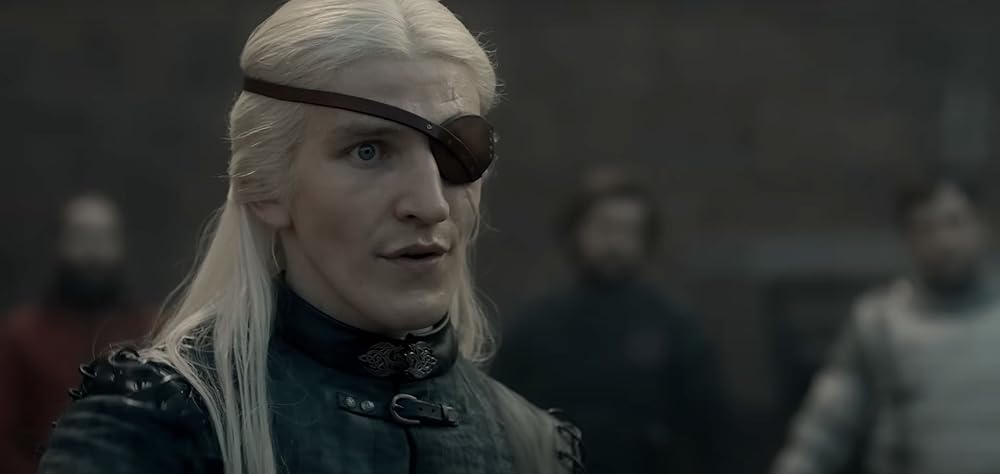
But as impressive and intimidating as Aemond has become, everything he is and does is clearly a way of compensating for his unhappy childhood. Aemond was so affected by his past experiences that he forged his existence around never reliving them, like the undersized kid who grows into the school jock and bully. This is what makes Aemond so dangerous: He feels justified in the present because of what happened in the past, tethering him to it and ensuring future tragedy.
The arrival of older Aemond was a game-changer in Season 1 of House of the Dragon, much of which has to do with the exciting young actor who portrays him. Ewan Mitchell, like Aemond, is an enigma himself. The subtleties of his performance and his conscientious physicality capture the inner life and sensitivity of the character. His slow-gliding gait (which Mitchell took from horror movie killers), his gentle, self-affirming “hmms” in between sentences—everything he does just oozes self-consciousness. He channels Aemond’s underlying insecurity, giving his exaggerated movements perfect narrative logic. Beneath everything, Mitchell’s performance shows Aemond is still just that bullied, disabled kid yearning for paternal love.
Once King Viserys finally passes away, Aemond’s side of the family usurps the throne and his brother Aegon is crowned. In retaliation, Rhaenyra forms a war council and dispatches her sons and their young dragons to enlist the other noble houses to her cause. But when barely-pubescent Lucerys arrives in the aptly named Storm’s End to persuade Lord Borros Baratheon, Vhagar is parked out front and Aemond is already inside the castle forming a marriage pact. Lucerys’ offer is coldly denied by the arrogant lord, and Aemond takes the opportunity to torment the lad. “I want you to put out your eye,” he threatens, removing his eye-patch to reveal the glistening sapphire beneath, “as payment for mine.”
Lucerys leaves and Aemond follows him into a storm. He toys with his nephew in the sky on his much larger dragon, forcing Lucerys to feel as helpless as Aemond once did. Harkening back to an earlier line that the dragons have a will of their own, Aemond momentarily loses control of Vhagar and strikes Lucerys.
In a matter of moments, Aemond becomes a kin-slayer. This, too, he must cope with.
Aemond Targaryen is the ultimate complex villain and coping character. He’s a morally gray individual moved by pain and insecurity, but he also possesses enough agency to make choices and take responsibility for his actions. He can’t be entirely to blame for the final outcome, but he certainly still suffers from its consequences. It’s the momentum of his childhood pain that lends an inevitability to his future actions and makes them even more tragic—tragic because of their inevitability. It’s tragically ironic that the most Targaryen Targaryen, who craved more than anything to live up to this grand legacy, was the one who set in motion the events that would destroy it.
Without entirely conceding to a kind of psycho-social determinism, none of us are entirely innocent or guilty. Rather, we are all clearly affected by our painful experiences and cope with them in our own ways.
Season 1 of House of the Dragon got this key insight right with Aemond. It showed that if you want to write a compelling character, you should make them suffer and suffer more—and have them change through the suffering and that brings about more change and suffering for them and everyone involved. We are all fallen princes and queens, strewn by circumstance and biology, dealing with our own tragic fates. If nothing else, Aemond has personally helped me cope with my own suffering. I can’t wait to see how House of the Dragon changes him in Season 2.
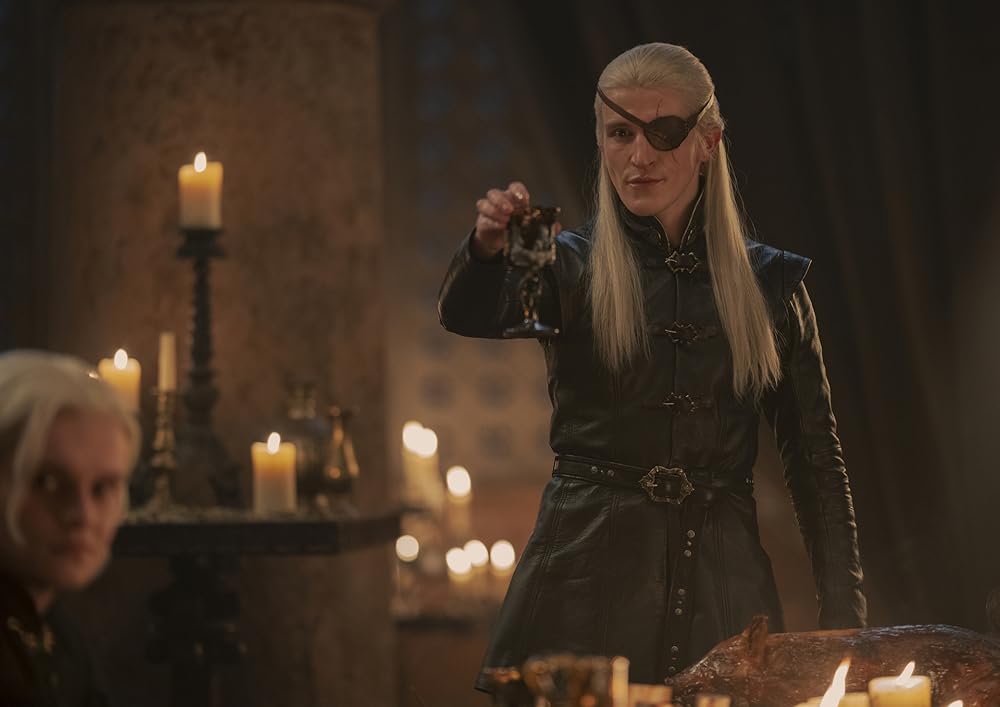
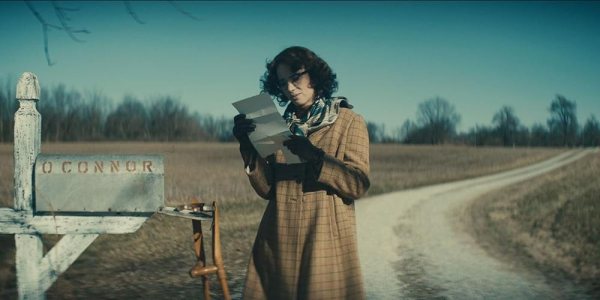

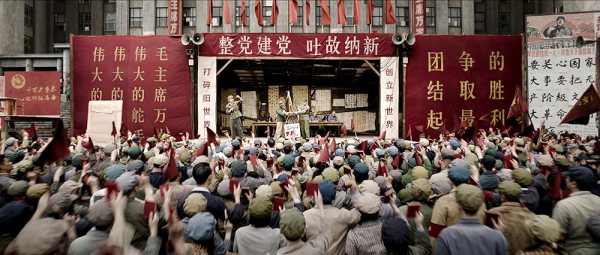

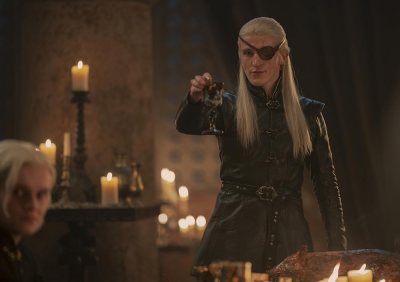
Please note that we at The Dispatch hold ourselves, our work, and our commenters to a higher standard than other places on the internet. We welcome comments that foster genuine debate or discussion—including comments critical of us or our work—but responses that include ad hominem attacks on fellow Dispatch members or are intended to stoke fear and anger may be moderated.
With your membership, you only have the ability to comment on The Morning Dispatch articles. Consider upgrading to join the conversation everywhere.